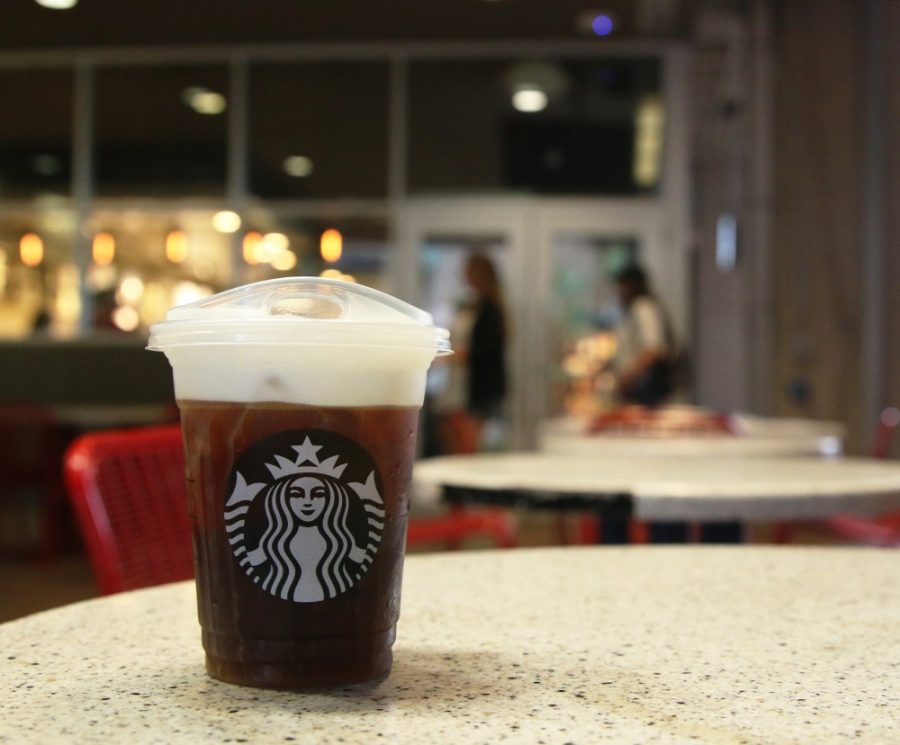The plastic straw, an accessory for frosty summer drinks, sweet sodas and the ever-enjoyable iced coffee, has been falling out of popularity in recent years, faced with a growing repercussion over its effect on the environment.
Starbucks, the popular coffee chain, announced Monday, July 9, that it would stop using disposable plastic straws by 2020.
With our present population faced with an increasing need to clean up our oceans from oil spills, landfill overflows and endless plastics, it was only a matter of time before a major chain stepped up and announced that they would make a change for the future of the environment.
RELATED: EDITORIAL: End inhumane family separation
Most people are aware that plastic cannot degrade back into the environment, but how much is really in our oceans?
Although it is difficult to identify exactly how much plastic is in the ocean, due to micro-particles and the amount that has sunk to the bottom, the Ocean Conservancy estimates that eight million metric tons of plastic end up in our oceans each year — adding to the estimated 150 million metric tons currently circulating our oceans. That’s the equivalent to a garbage truck dumping plastic into the ocean every minute.
According to a report by Swiss non-profit World Economic Forum, by the year 2050, there will be more plastic in the ocean than fish. Starbucks’ elimination of plastic straws will result in a reduction of more than one billion straws a year, which is a good thing for our oceans and ourselves.
A big coffee chain eliminating the use of straws will hopefully lead to more chains following in those footsteps, but this does not mean that there will be lidless cups going around — instead, this leads to new innovations like the Starbucks cold cup straw-less lids or in the case of Frappuccinos, biodegradable paper straws.
Chains and coffee shops all around already offer you discounts if you bring your own cup, eliminating the use of a plastic one, and companies like Simply Straws sell reusable metal, hard plastic and glass straws, which allows individuals to help the environment, but now hopefully more major companies will choose to respond.
“Starbucks is the biggest company to make the environmentally friendly move and it’s expected that more companies will follow its lead and offer their own eco-friendly alternatives to plastic straws,” wrote Gina Martinez in Time Magazine Monday.
This same month, Seattle, the headquarters of Starbucks, became one of the first major cities in the U.S. to ban single-use plastic straws. Several cities in Florida and California have banned or partially banned the straws and state officials in California are considering a measure that would prevent restaurants from handing out plastic straws unless requested by a customer.
RELATED: EDITORIAL: UA just beginning journey back towards public trust
There have been arguments that this elimination leads to issues with people who rely on straws due to an inability to pick up the cup or other disabilities, but the company is set to take those factors into consideration with the biodegradable paper straws.
Other companies that focus on the production of plastic have also brought up concerns saying that “straws are not to blame; the problem is litter.”
Starbucks, however, said it feels that the decision to eliminate plastic straws will be good for the company from both an environmental and business standpoint.
“By nature, the straw isn’t recyclable and the lid is, so we feel this decision is more sustainable and more socially responsible,” Chris Milne, director of packaging sourcing for Starbucks, said in a statement.
So far, the new cold-cup-lids as straw replacement have debuted in more than 8,000 stores in the U.S. and Canada and will be in stores worldwide by 2020.
Other companies should understand that they have a massive impact on the environment — now they have to make the choice between a positive and negative impact.
— Editorials are determined by The Daily Wildcat Opinions Board and are written by its members. They are Editor-in-Chief Jasmine Demers, Engagement Editor Eddie Celaya, Managing Editor Marissa Heffernan and Arts & Life Editor Pascal Albright.
Follow Daily Wildcat on Twitter









